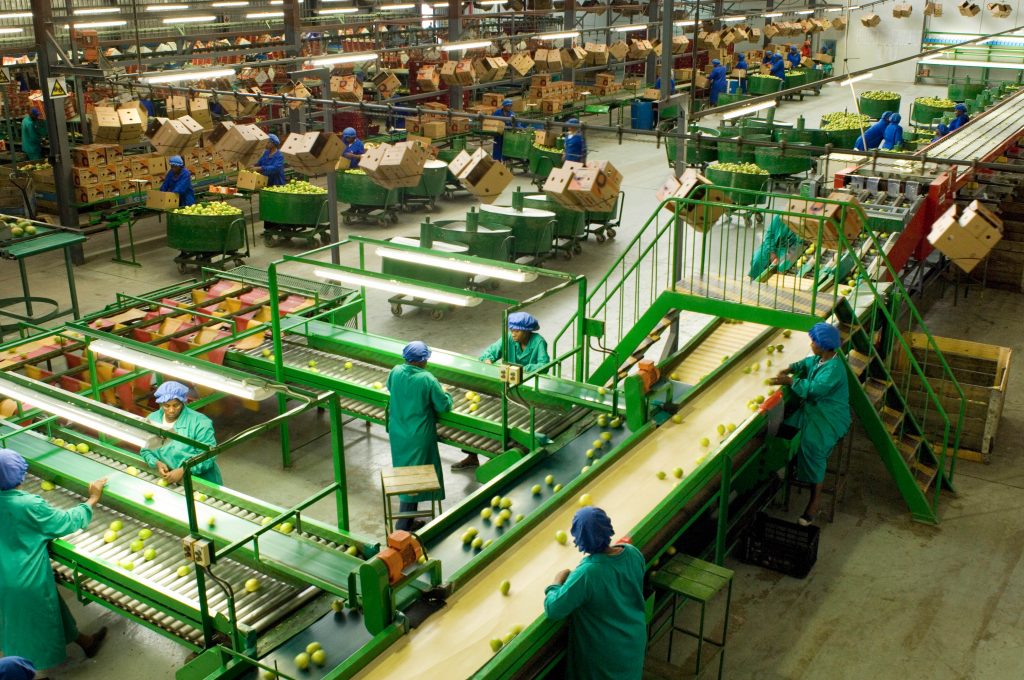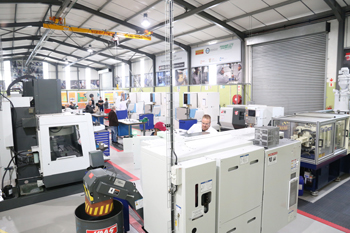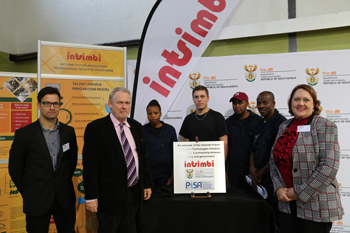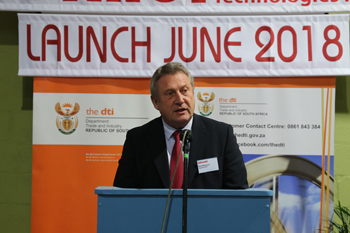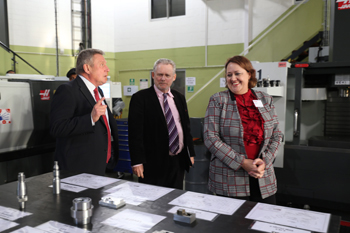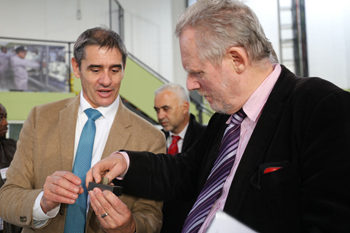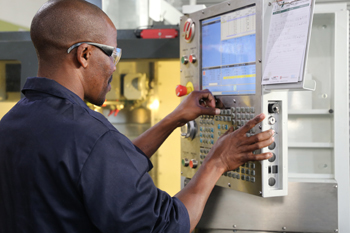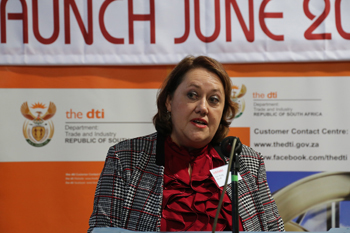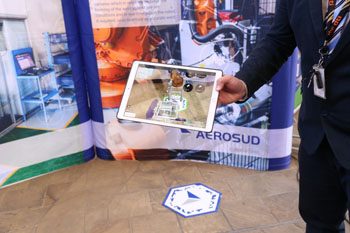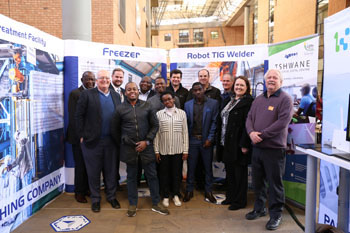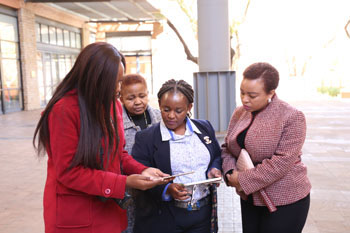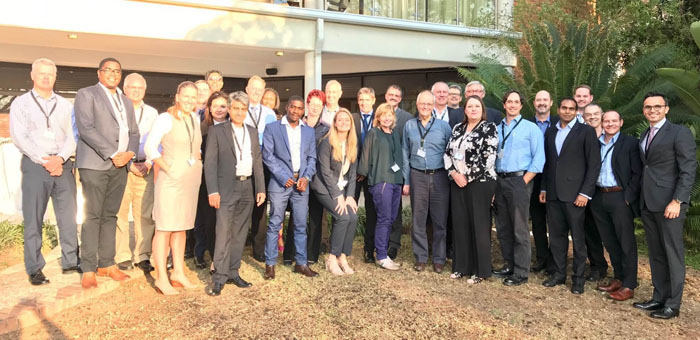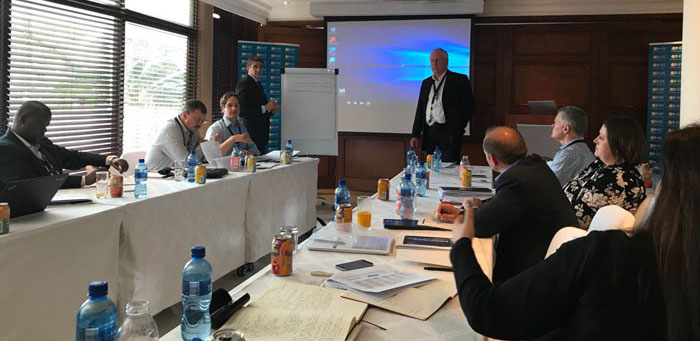Future Industrial Production & Technologies
Minister Davies Launches New Intsimbi Future Production Technologies InitiativeThe Minister of Trade and Industry, Dr Rob Davies has launched the new Intsimbi Future Production Technologies Initiative (IFPTI) in Cape Town. The launch took place at NTIP’s Centre of Excellence which was recently equipped with new state-of-the-art industrial machinery for the artisan programme. Speaking at the event, Minister Davies said the new IFPTI was developed in line with the principles of new production technologies for the 4th Industrial Revolution. He said government was building capacity in response to the impact and opportunities that the 4th Industrial Revolution will bring about. “The launch of the new programme includes the renaming and rebranding of the previous National Tooling Initiative Programme (NTIP) programme. The key oversight body will remain the Intsimbi Board and the implementation agency NTIP. NTIP will no longer be the National Tooling Initiative Programme but will be named the National Technologies Implementation Platform (NTIP), the same acronym because of its international standing”, said Davies. The launch of Intsimbi marks an expansion of the previous pilot National Tooling Initiative programme into a fully-fledged 4th Industrial Revolution programme which will include amongst others training in robotics, mechatronics, and industrial maintenance. The Intsimbi model has succeeded in creating highly innovative industry driven solutions that can sustainably be expanded, which will position SA’s Advanced Manufacturing sector for the 4th Industrial revolution that is transforming global competitiveness in Manufacturing. “More than 500 companies, from key industries specialising in hi-tech Capital Equipment, Steel and Plastics as well as Tool, Die and Mould-making industries, will be participating in the programme by providing on-the-job facilities in their factories for students”, indicated Davies. In terms of Industrial Policy Action Plan 2018/19, the concept of digital industrial technologies is profoundly shaping government’s efforts to promote industrial development in an already complex global economy. The IFPTI programme will serve as one of the levers government implement to lessen the disruptive and challenging impacts of the 4th Industrial Revolution. In response to the challenges of the 4th Industrial Revolution, Mr Bob Williamson, Chairman of the IFPTI said “to raise to these challenges it is imperative that our industry embraces the fact that they need to adapt to the use of technologies such as robotics, artificial intelligence, nanotechnologies and quantum computing”. The Intsimbi Future Production Technologies Initiative programme beneficiary, Mr Devon de Freitas said that the programme had exposed him to more advanced aspects of toolmaking. “During my stint I was taught the science of computer numerical control machining as well as computer aided designs. All these equipped me with a competitive edge in my pursuit of employment opportunities as prospective employers are more trusting of candidates that possess basic knowledge in advanced machining,” said de Freitas.
VR and AR showcase at the dticThe Industrial Development Division invited officials to experience the exciting world of Virtual Reality (VR) and Augmented Reality (AR). The Fourth Industrial Revolution will have a significant impact on manufacturing, future production and technology. The VR and AR simulation showcased some of the applications in the manufacturing environment at the internal street at the dtic.
WEF – Country Readiness for the Future of ProductionDisruptive technologies are transforming global production systems and unleashing a new wave of competition among producers and countries alike. The Country Readiness for the Future of Production project will convene government and business leaders to catalyze national and regional action through global insights, engagement and coordination.
|
Contact detailsFor Fourth Industrial Revolution enquiries please contact Ms Ilse Karg
|
||||||||||||||||||||||||||||||||||||||||||||||||||||||||||||||
